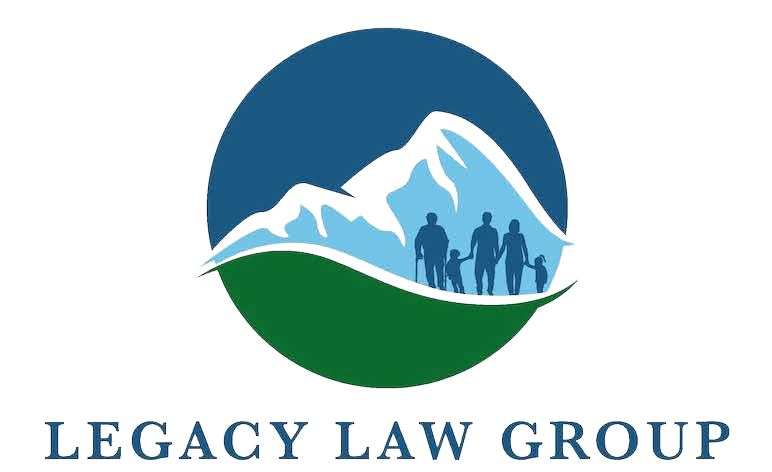BEFORE HIRING AN ESTATE
PLANNING LAWYER
UNDERSTAND THE DIFFERENCE
Many estate planning attorneys take a “one-size fits all” approach with their clients; they do this so that they can work with as many people as possible in a short period of time. The problem is that the client has impersonal experience; but worse than that, this way of planning can lead to unintended results in the long run for the family.

CONSEQUENCES WHEN ATTORNEYS DON'T LISTEN
When lawyers do not take the time to listen and consider a family’s personal circumstances, the result is that your Will & Trust Documents do not end up reflecting what your family really wants to happen. And usually there is no review or updating, so the plan quickly becomes outdated and does not work when your family needs it most.
So even though you may pay less up front to get a standard set of documents (or even documents that are customized for your family), things end up much more expensive in the long run. Plus, you leave your family at risk of having to deal with an expensive, unnecessary court process during a time of tremendous grief.
WE LISTEN
Legacy Law Group is right for you if you want to know that your plan will actually work when you and your loved ones need it most. If all you want is a set of legal documents, there are plenty of online resources you can use to create them. Or you can go to a traditional estate planning lawyer.
If what you want is to know you’ve got a plan in place that will work when your family needs it, and keep the people you love out of court, and out of conflict, and your assets out of the hands of the government, then we might be the right fit for you.
HERE ARE SOME OF THE WAYS WE ARE DIFFERENT
FROM MOST OTHER ESTATE PLANNING LAWYERS
- All of our fees are fixed fees agreed to in advance,so there are no surprises. At our initial meeting you will choose the level of planning and fee that works best for your family, so there will never be any surprises.
- We keep you informed and make sure your plan works. We don’t just prepare a set of legal documents for you and send you on your way.
- We make sure your assets are owned in the right way, we make sure your kids’ well-being is properly planned for, we ensure everyone you’ve named in your plan knows what to do if anything happens to you. And, we make sure that none of your assets become part of the $58 Billion of unclaimed assets across the United States.
- We review your plan at least every 3 yearsand annually through our Family Wealth VIP Membership program. We foster a lifetime, ongoing relationship with our clients. Throughout your life, things change. You change; your assets change; your family changes; the law will definitely change. When planning with us, your plan will keep up with those changes.
- We have a whole team in place to answer your quick questionsand to make the planning process incredibly easy and painless for you and your family. We have a process for helping you make sure that your assets are titled in the right way, both now and over your lifetime.
- We help you get your legal and financial house in orderby helping you make smart choices about things like buying insurance, saving for college, and retirement planning so you never spend more than you have to or get taken advantage of by unscrupulous sales people.
- We’ve been specifically trained as a Personal Family Lawyer® to plan for your life and death, and to ensure that if you have minor children, they are never raised by anyone you wouldn’t want or taken into the care of strangers. And, if your children are adults, we help you weave them into your estate plan with care and forethought that most other lawyers simply do not have the training to do.
- Legacy Planning.We believe that planning is about much more than just the transfer of your financial wealth. With all of our plans, we include a process to help you transfer your most important personal wealth to your loved ones, including your intellectual, spiritual and human assets – who you are and what’s important to you.
READY TO BEGIN?
DON’T LET A SET OF LEGAL DOCUMENTS BECOME FALSE SECURITY THAT KEEPS YOU FROM DOING WHAT’S BEST FOR YOUR LOVED ONES.
Before you engage an estate planning lawyer to help you plan for the well‐being of your money, your family and your life, there are questions you need to ask. You need to ensure that the estate plan you put in place will really work when your family needs it and won’t end up just a pile of worthless paper after you are gone.
WHAT IS A REVOCABLE
LIVING TRUST?
This is an agreement with three parties: the Trust-makers, the Trustees (or Trust Managers), and the Trust Beneficiaries. For example, a husband and wife may name themselves all three parties to create their trust, manage all the assets transferred to the trust, and have full use and enjoyment of all the trust assets as beneficiaries. Further “back-up” managers can step in under the terms of the trust to manage the assets should the couple become incapacitated or die. Special provisions in the trust also control the management and distribution of assets to heirs in the event of the trust maker’s death. With proper planning, the couple also can avoid or eliminate death taxes on their estate. The Revocable Living Trust may allow them to accomplish all this outside of any court proceedings.
Whether you are young or old, rich or poor, married or single, if you own titled assets such as a house and want your loved ones to avoid court interference at your death or incapacity, consider a revocable living trust. A trust allows you to bring all of your assets together under one plan.
WHAT IS A LIVING WILL?
Sometimes called an Advance Medical Directive, a living will allows you to state your wishes in advance regarding what types of medical life support measures you prefer to have, or have withheld/withdrawn if you are in a terminal condition (without reasonable hope of recovery) and cannot express our wishes yourself. Oftentimes a living will is executed along with a Durable Power of Attorney for Health care, which gives someone legal authority to make your health care decisions when you are unable to do so yourself.
What does Intestacy mean?
If you die without even a Will (intestate), the legislature of your state has already determined who will inherit our assets and when they will inherit them. You may not agree with their plan, but roughly 70 percent of Americans currently use it.
WHAT IS A WILL?
The document a person signs to provide for the orderly disposition of assets after death. Wills do not avoid probate. Wills have no legal authority until the willmaker dies and the original will is delivered to the Probate Court. Still, everyone with minor children needs a will. It is the only way to appoint the new “parent” of an orphaned child. Special testamentary trust provisions in a will can provide for the management and distribution of assets for your heirs. Additionally. assets can be arranged and coordinated with provisions of the testamentary trusts to avoid death taxes.
HOW ARE WE DIFFERENT?
At Legacy Law Group, we believe in building lasting relationships with our clients. That’s why we offer a free assessment of your current estate plan every 3 years. Our commitment of keeping your plan up-to-date assures that it aligns with your evolving needs and circumstances, providing you with ongoing peace of mind.
WHAT IS INCLUDED IN AN ESTATE PLAN?
Legacy Law Group offers three levels of planning to suit your varying needs, and you get to choose the level of planning that best fits your family. From starter plans designed primarily for families with young children and not yet much in the way of financial wealth, to more robust plans for well-established families concerned with matters of asset protection, preservation and increased growth, we have you covered. When we meet for your Family Wealth Planning Session, we will review our three planning levels with you, and you will choose our own fee based on your budget and the planning options that are most important to you and your family.
WHAT IS THE DIFFERENCE BETWEEN A
WILL & A TRUST?
Wills and trusts are two of the most commonly used estate planning documents, and they form the foundation of most estate plans. While both documents are legal vehicles designed to distribute your assets to your loved ones upon your death, the way in which they work is quite different
What Do Clients Say?
REACH OUT TO OUR TEAM

Learn More About Anastasia
Anastasia FainbergAttorney at Law
















